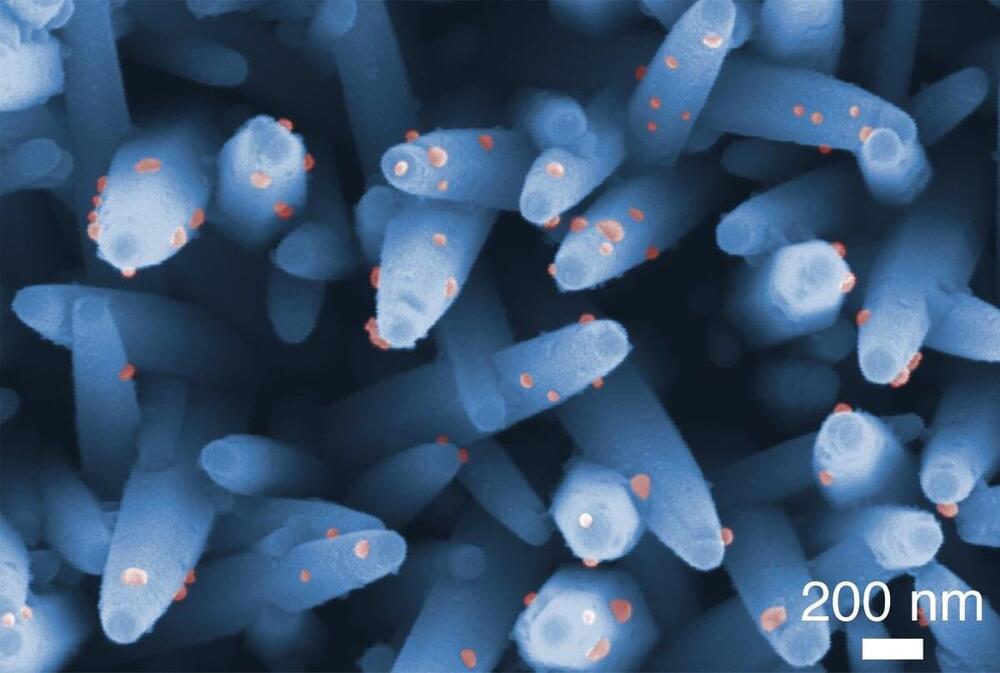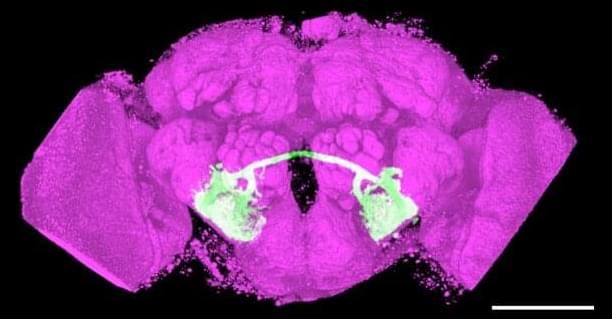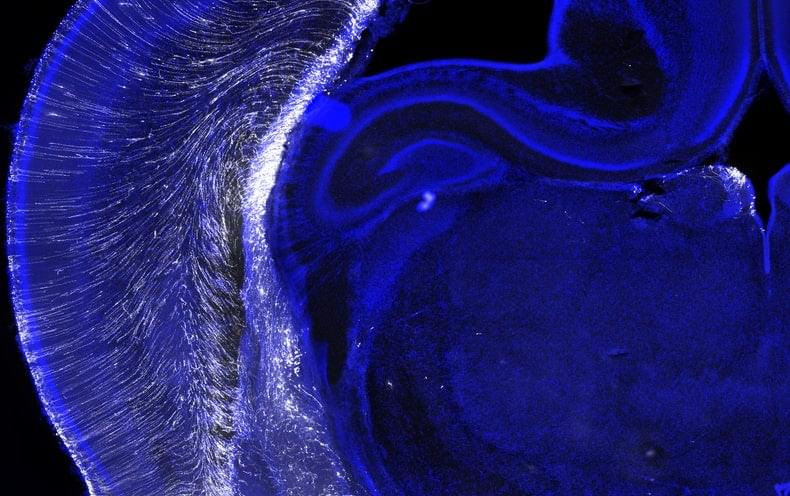𝐑𝐞𝐬𝐞𝐚𝐫𝐜𝐡𝐞𝐫𝐬 𝐚𝐭 𝐍𝐚𝐠𝐨𝐲𝐚 𝐔𝐧𝐢𝐯𝐞𝐫𝐬𝐢𝐭𝐲 𝐢𝐧 𝐉𝐚𝐩𝐚𝐧 𝐡𝐚𝐯𝐞 𝐮𝐬𝐞𝐝 𝐚 𝐧𝐞𝐰 𝐝𝐞𝐯𝐢𝐜𝐞 𝐭𝐨 𝐢𝐝𝐞𝐧𝐭𝐢𝐟𝐲 𝐚 𝐤𝐞𝐲 𝐦𝐞𝐦𝐛𝐫𝐚𝐧𝐞 𝐩𝐫𝐨𝐭𝐞𝐢𝐧 𝐢𝐧 𝐮𝐫𝐢𝐧𝐞 𝐭𝐡𝐚𝐭 𝐢𝐧𝐝𝐢𝐜𝐚𝐭𝐞𝐬 𝐰𝐡𝐞𝐭𝐡𝐞𝐫 𝐭𝐡𝐞 𝐩𝐚𝐭𝐢𝐞𝐧𝐭 𝐡𝐚𝐬 𝐚 𝐛𝐫𝐚𝐢𝐧 𝐭𝐮𝐦𝐨𝐫. 𝐓𝐡𝐢𝐬 𝐩𝐫𝐨𝐭𝐞𝐢𝐧 𝐜𝐨𝐮𝐥𝐝 𝐛𝐞 𝐮𝐬𝐞𝐝 𝐭𝐨 𝐝𝐞𝐭𝐞𝐜𝐭 𝐛𝐫𝐚𝐢𝐧 𝐜𝐚𝐧𝐜𝐞𝐫, 𝐚𝐯𝐨𝐢𝐝𝐢𝐧𝐠 𝐭𝐡𝐞 𝐧𝐞𝐞𝐝 𝐟𝐨𝐫 𝐢𝐧𝐯𝐚𝐬𝐢𝐯𝐞 𝐭𝐞𝐬𝐭𝐬, 𝐚𝐧𝐝 𝐢𝐧𝐜𝐫𝐞𝐚𝐬𝐢𝐧𝐠 𝐭𝐡𝐞 𝐥𝐢𝐤𝐞𝐥𝐢𝐡𝐨𝐨𝐝 𝐨𝐟 𝐭𝐮𝐦𝐨𝐫𝐬 𝐛𝐞𝐢𝐧𝐠 𝐝𝐞𝐭𝐞𝐜𝐭𝐞𝐝 𝐞𝐚𝐫𝐥𝐲 𝐞𝐧𝐨𝐮𝐠𝐡 𝐟𝐨𝐫 𝐬𝐮𝐫𝐠𝐞𝐫𝐲. 𝐓𝐡𝐢𝐬 𝐫𝐞𝐬𝐞𝐚𝐫𝐜𝐡 𝐜𝐨𝐮𝐥𝐝 𝐚𝐥𝐬𝐨 𝐡𝐚𝐯𝐞 𝐩𝐨𝐭𝐞𝐧𝐭𝐢𝐚𝐥 𝐢𝐦𝐩𝐥𝐢𝐜𝐚𝐭𝐢𝐨𝐧𝐬 𝐟𝐨𝐫 𝐝𝐞𝐭𝐞𝐜𝐭𝐢𝐧𝐠 𝐨𝐭𝐡𝐞𝐫 𝐭𝐲𝐩𝐞𝐬 𝐨𝐟 𝐜𝐚𝐧𝐜𝐞𝐫. 𝐓𝐡𝐞 𝐫𝐞𝐬𝐞𝐚𝐫𝐜𝐡 𝐰𝐚𝐬 𝐩𝐮𝐛𝐥𝐢𝐬𝐡𝐞𝐝 𝐢𝐧 𝐀𝐂𝐒 𝐍𝐚𝐧𝐨.
Although early detection of many types of cancer has contributed to the recent increases in cancer survival rates, the survival rate for brain tumors has remained almost unchanged for over 20 years. Partly this is due to their late detection. Physicians often discover brain tumors only after the onset of neurological symptoms, such as loss of movement or speech, by which time the tumor has reached a considerable size. Detecting the tumor when it is still small, and starting treatment as soon as possible, should help to save lives.
One possible sign that a person has a brain tumor is the presence of tumor-related extracellular vesicles (EVs) in their urine. EVs are nano-sized vesicles involved in a variety of functions, including cell-to-cell communication. Because those found in brain cancer patients have specific types of RNA and membrane proteins, they could be used to detect the presence of cancer and its progression.





